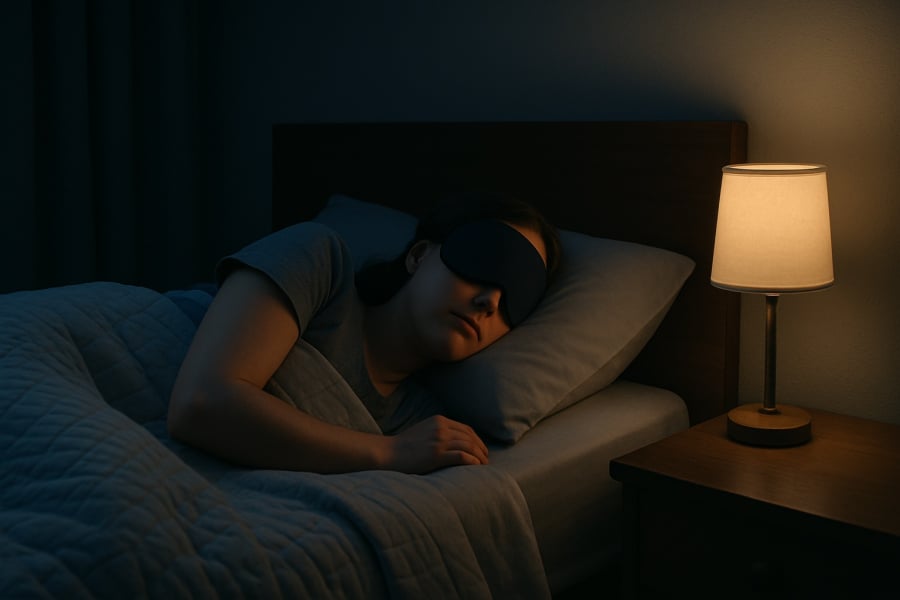The Dangers of Burning the Midnight Oil: How Late Nights Take a Toll on Your Health
While pulling an all-nighter once in a while may not seem like a big deal, especially when you have a deadline looming or an unexpected emergency, making a habit of it can have far-reaching consequences for your health. Numerous scientific studies have linked regularly sleeping past midnight to a host of negative impacts on the body. When you stay up late, your body misses out on the opportunity to fully recover, leading to a myriad of health issues.
For adults, the recommended average sleep duration is between 7-9 hours each night. However, this number isn’t just a random statistic; it also takes into account the quality of sleep and the timing of when you fall asleep. Consistently sleeping late means your body doesn’t get fully “charged,” leading to a host of unwanted complications.
Weight Gain: The Surprising Connection to Late Nights
Have you ever wondered why you’re gaining weight despite cutting down on your food intake? Your sleep schedule might be the culprit. According to research published in various medical journals, individuals who consistently burn the midnight oil have a 20% higher risk of obesity compared to early sleepers. The reason lies in the body’s increased production of insulin during late nights, which heightens your appetite and cravings for sugary or fatty foods.
Ms. Nguyen Ha Linh, a busy mother, shared her experience: “I used to stay up late to finish household chores and check emails. After a month of this routine, I realized I had gained 3 kg despite no changes in my diet.” Many others can relate to Ms. Linh’s story.

Late Nights: A One-Way Ticket to Stress and Mental Health Issues
Sleeping late not only contributes to weight gain but also increases your susceptibility to stress and anxiety. Numerous studies indicate that individuals who regularly go to bed after 1 am are at a 40% higher risk of developing depression and anxiety disorders. When the body doesn’t get the rest it needs, the brain functions less efficiently, leading to elevated levels of cortisol, the stress hormone.
Ms. Minh Thu, a teacher, shared her experience: “On nights when I stayed up late preparing lessons, I often felt exhausted and easily irritable with my students. Getting sufficient sleep made me realize I had been unintentionally putting too much pressure on myself.”
Brain Drain: The Impact of Late Nights on Cognitive Function
Here’s something you might not know: the first few hours of sleep before midnight are crucial for brain recovery and memory consolidation. This period enhances memory, concentration, and creative thinking. When you sleep late, your brain doesn’t get adequately “charged,” resulting in a groggy and energy-depleted feeling the next morning.
Mr. Nguyen Hoang Anh, an office worker, shared his experience: “Every time I stay up late working, I feel exhausted and find it challenging to focus the next day. As a result, I end up having to work twice as hard to catch up.”
The Alarming Link Between Late Nights and Cardiovascular Health
In addition to its impact on brain function and weight, sleeping late can also have severe consequences for your cardiovascular health. Research suggests that individuals who fall asleep between 10 pm and 11 pm have the lowest risk of cardiovascular disease. In contrast, those who consistently burn the midnight oil are more likely to develop heart-related issues, high blood pressure, and diabetes.
It’s time to make a change and protect your health from the dangers of late nights. Embrace a healthier sleep schedule, and you might be surprised by the positive transformation it brings!

Strategies for Improving Sleep Quality
- Set a fixed bedtime as the first step toward improving your sleep. Create a sleep schedule and stick to it, even on weekends. This helps your body develop a natural rhythm, making it easier to fall asleep.
- Avoid sleeping in, as tempting as it may be. Instead, wake up early and use that time for light, relaxing activities. This helps regulate your body’s internal clock and promotes alertness throughout the day.
- Create an ideal sleep environment. Your bedroom should be dark, quiet, and cool (around 18°C). If light or noise is an issue, consider using blackout curtains, an eye mask, or soft background sounds to promote relaxation.
- Choose natural fabrics for your bedding and sleepwear. Cotton or linen sheets and pajamas provide comfort and breathability, ensuring a pleasant sleeping experience. This not only keeps you cool but also enhances overall sleep comfort.
Don’t Underestimate the Power of Sleep
A good night’s sleep is crucial for both physical health and a positive mindset. Prioritize your sleep and don’t let it become a silent health hazard. Make the necessary changes today to protect yourself from the adverse effects of late nights. Embrace a healthier sleep schedule, and you’ll be amazed at the positive transformation it brings to your overall well-being.
The Magic Elixir: A Royal Secret to Eternal Youth?
Introducing the beverage that was once a favorite of the “Bubble Princess” singer, but is now a beauty blunder. This drink, once a refreshing treat, has now been revealed to have detrimental effects on one’s appearance. With consequences that far outweigh the temporary satisfaction, it’s a regretful sip for those seeking to maintain their radiant glow.





































